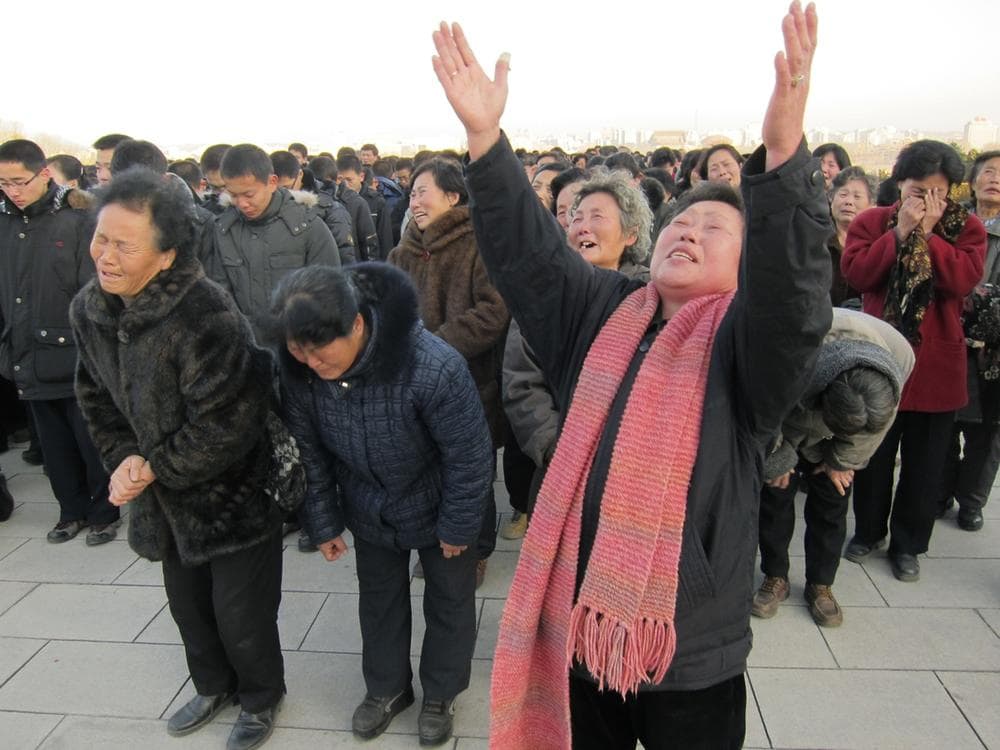Advertisement
What Kim Jong Il's Death Means For People Of North Korea
Resume
North Koreans are mourning the death of Kim Jong Il, who died of a heart attack this weekend.
The late Kim's son, Kim Jong Un, is the heir apparent and experts say this transition period will be a challenge for the young man, who has had little time to develop a power base and inherits control of a country that is poorer than the one his father inherited in 1994.
Crocodile Tears
Los Angeles Times Beijing Bureau Chief Barbara Demick says she's not sure what's driving the outpouring of tears and grief in North Korea today.
"It's sometimes hard to tell if people are crying because they feel so sad about the death of this man or they're crying because they're worried about themselves and what happens next," she told Here & Now's Robin Young.
Demick says the tears she's seeing from North Koreans may be "crocodile tears," meaning they are fake.
Kim Jong Il's Legacy
Demick says Kim Jong Il was not beloved in the way his father, Kim Il Sung was because Kim Jong Il presided over a widespread famine in the 90s that left 2 million dead. "He's not a popular figure, no matter what you're seeing on TV," Demick said.
"There are a lot of people who were very angry, and they couldn't be fooled forever after what they went through in the '90s... I think people have been pretty fed up with the regime," she said.
The Famine Of The 90s
In her book, "Nothing to Envy: Ordinary Lives in North Korea," Demick tells the stories of 6 defectors who saw the famine of the 90s firs hand, and recounted having to pick grass and shrubs to survive, and seeing others pick undigested corn out of animal excrement for food.
She says that though things slightly improved in 2000 when the economic system was opened and allowed some markets. But Kim Jong Il eventually closed the markets, which helped to bring about the current economic crisis, Demick says.
"The new government is going to have a very difficult time... they need to modernize the economy," Demick says. "They can't keep themselves hermetically sealed in the middle of this great economic miracle that is the rest of Asia. They want money in and foreign influences out. They need to reform their economy."
- Here & Now: Hear Our 2010 Interview With Barbara Demick
Guest:
- Barbara Demick, Beijing bureau chief, Los Angeles Times, author of "Nothing to Envy: Ordinary Lives in North Korea"
This segment aired on December 19, 2011.